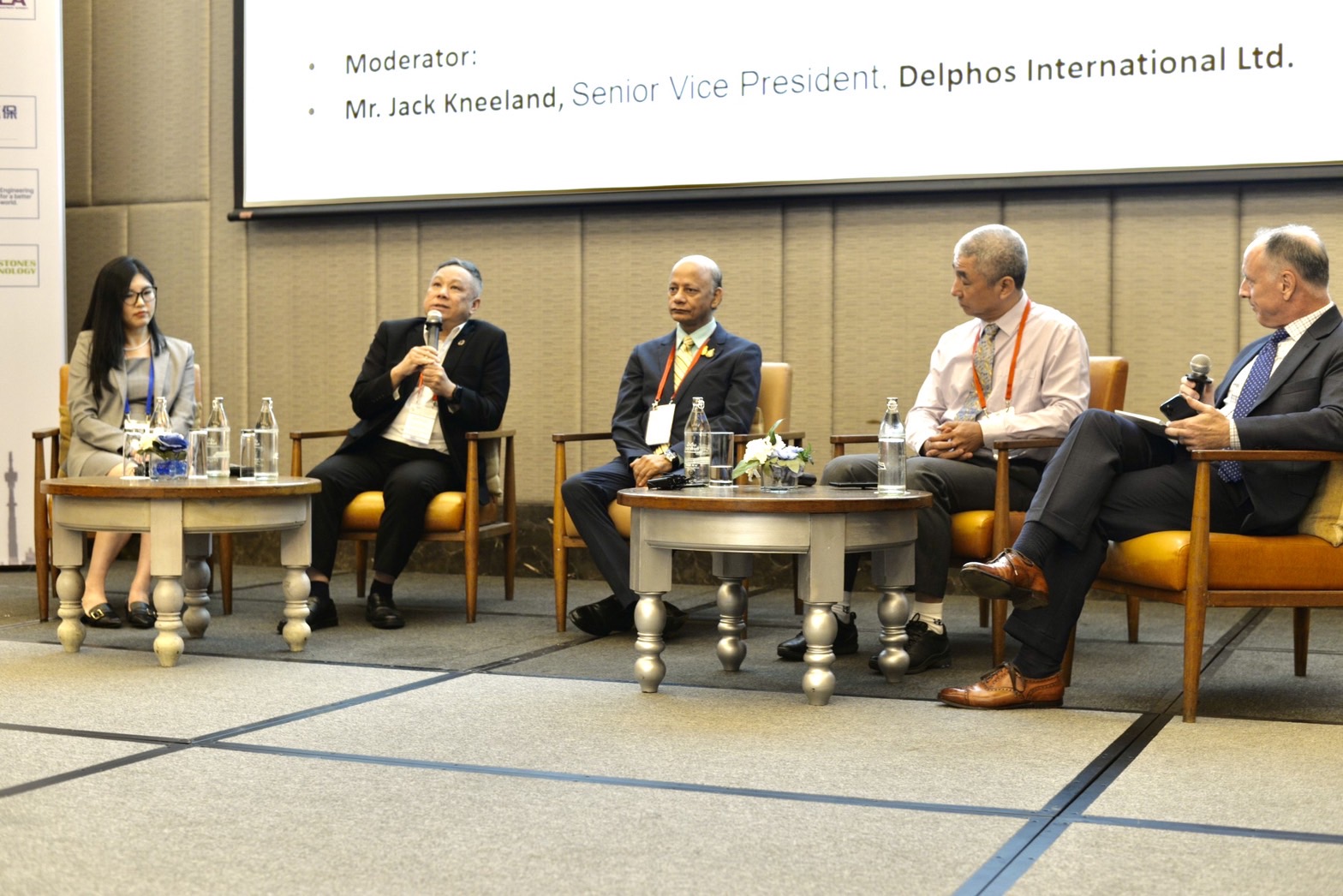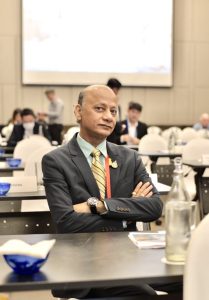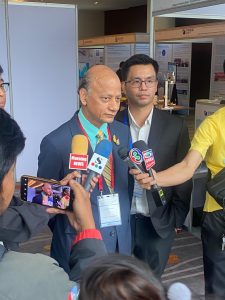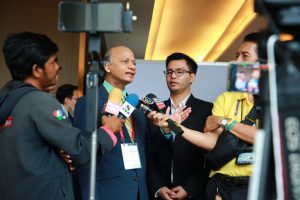

24 October 2023
CEO of EEP Group participates in exchanging experiences in Municipal Solid Waste management at the regional level in Asia.

Mr. Abinash Majhi, CEO of EEP Group, has accepted an invitation from Innovation Networking Brainstorm Connection (INBC Global) to participate in a forum for exchanging knowledge and sharing experiences with executives from multiple companies specializing in waste management and converting waste into energy. This event is part of the 7th Waste Management & Waste to Energy Asia Summit 2023, which will take place on Wednesday, October 25, 2023, at the Grand Ballroom, 4th floor of the Radisson Blu Plaza Hotel in Bangkok.

Mr. Abinash Majhi has extensive management experience in various countries, including Asia, Europe, and America. He has observed the challenges of Municipal Solid Waste and the diverse approaches to waste management in different countries. When he assumed a leadership role in managing the operations of the Eastern Energy Plus Limited group of companies, which conducts comprehensive municipal solid waste management in the Samut Prakan province, these experiences played a significant role. This transformation occurred in the year 2019. The concept of managing municipal solid waste that has been ingrained in his thinking for a long time was immediately put into practice. He strongly believes in the 3Rs principle as an effective way to manage municipal solid waste comprehensively.

This principle advocates for reducing the generation of new waste (Reduce), reusing items that are still usable until they can no longer be used (Reuse), and recycling discarded items into new products (Recycle). By adhering to the 3Rs principle, the overall volume of community waste gradually decreases. Furthermore, if every household collaborates in segregating waste into different categories and then repurposes each type of waste for various uses, waste accumulations are minimized. Ultimately, the amount of newly generated waste aligns with the amount of waste being repurposed, leading to the virtual elimination of accumulated waste. However, he emphasizes that waste segregation is a practice that primarily occurs at the source. He believes that the intermediate step of collecting and transporting waste should also be improved to ensure efficient waste management. If all stakeholders work together, the final disposal stage of municipal solid waste can be made easier and quicker, to the point where accumulations of waste are no longer visible. This approach also helps alleviate the problem of foul-smelling waste piles, which can be a nuisance to communities. As for dealing with the issue of odor from waste and the substantial accumulation of waste at the company’s landfill sites, he places a high emphasis on investing in modern equipment. One such example is the use of an automated intelligent “E-Nose” device installed in communities located in the path of prevailing winds, which is used to detect the intensity of odors carried by the wind to those areas. This technology helps the team of “Smell fighters” expedite their efforts to mitigate the problem effectively and promptly. In addition, the company has established a biologically-produced Effective Microorganism (EM) unit using wet vegetable waste within the company’s premises. Utilize the company’s specialized EM solution, which is produced, to alleviate the odor at the landfill sites. This solution is also used to accelerate the decomposition of organic matter in wet waste categories such as food scraps, vegetables, and fruits during the landfilling process.

Additionally, EEP have incorporated knowledge gained from in-depth experiences and best practices observed in various countries into landfill management practices. Techniques like covering the incoming daily waste with plastic sheets to prepare for compaction, adhering to specified standards, are just some of the methods adopted. Employed various engineering principles to enhance their landfill management practices. This includes the use of drones for aerial photography to create coordinate-based mapping for landfill sites. Also divided the areas into cells to facilitate systematic management. Utilize temperature detection equipment within the landfill to monitor the risk of fires. Collaboration with leading educational institutions and universities in the country for research into handling the significant issue of accumulated waste. Experimented with innovative landfill techniques, such as implementing a semi-aerobic landfill approach on a portion of the landfill site. Additionally, specialized drilling is used to create vertical holes for water drainage from the landfill, significantly reducing the height of waste mounds, which is a critical achievement. EEP have expedited the approval process with relevant government authorities to construct an additional three waste-to-energy power plants in EEP area. This expansion aims to accelerate the utilization of accumulated waste, leading to a more rapid reduction in the amount of accumulated waste. EEP have assembled a team of waste champions, who are employees of the company, to provide knowledge to the communities in various areas of Samut Prakan province. They educate the residents on the separation of wet waste, including food scraps, vegetables, and fruits, from dry waste. They recommend that households take the separated wet waste and turn it into compost to nourish the vegetables grow at home. When each household follows this practice, the amount of wet waste, especially food scraps, which are the main source of foul odors, decreases significantly. This, in turn, reduces the frequency of waste collection by garbage trucks to disposal sites and leads to a decrease in the accumulation of organic waste in landfills. The intensity of the odor from rotting waste diminishes as a result. Everything that has taken place since Mr. Abinash Majhi assumed the leadership of EEP Group has aligned with the vision of managing an organization firmly grounded in the principles of ethical business conduct. The organization and businesses must thrive and grow. Employees and stakeholders must receive appropriate care and, most importantly, they must coexist amicably with the communities in the vicinity of Samut Prakan. They must avoid causing any disturbance or irritation to these communities intentionally. If any unforeseen circumstances arise, they must be rectified promptly, with a sense of responsibility. These experiences will be shared and exchanged on the forum stage.
